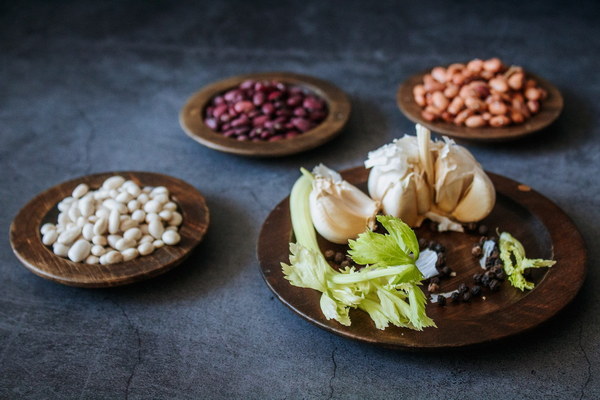Maximize Weight Loss with Health-Promoting Diet Tips for Eating Right
Introduction:
Losing weight and maintaining a healthy lifestyle can be challenging, but with the right approach, it becomes much easier. Incorporating a health-promoting diet into your daily routine can help you shed those unwanted pounds while ensuring your body receives essential nutrients. In this article, we will discuss how to eat your way to weight loss with a focus on incorporating nutritious and delicious meals into your diet.
1. Plan Your Meals:
A well-planned diet is key to achieving weight loss. Start by creating a weekly meal plan that includes a variety of foods from all food groups. This will help ensure you receive a balanced intake of vitamins, minerals, and other essential nutrients. Allocate time each week to plan your meals, and consider using a meal planning app or template to make it easier.
2. Focus on Whole Foods:
Instead of relying on processed and refined foods, opt for whole foods such as fruits, vegetables, whole grains, lean proteins, and healthy fats. These foods are naturally rich in fiber, which keeps you feeling full longer and helps regulate your blood sugar levels. Incorporate a variety of colors and textures into your meals to increase the nutrient content and make them more enjoyable.
3. Portion Control:
One of the most important aspects of weight loss is controlling portion sizes. Even healthy foods can contribute to weight gain if consumed in excess. Use measuring cups or a food scale to track portion sizes, and be mindful of serving sizes when dining out. Remember that a healthy portion of protein is about the size of a deck of cards, a half-cup of cooked grains or vegetables, and a small handful of nuts or seeds.

4. Include High-Protein Foods:
Protein is essential for weight loss as it helps build and maintain muscle mass, boosts metabolism, and keeps you feeling full. Incorporate lean protein sources such as chicken, turkey, fish, tofu, legumes, and eggs into your meals. High-protein snacks, like Greek yogurt or nuts, can also help curb hunger and prevent overeating.
5. Prioritize Vegetables and Fruits:
Vegetables and fruits should form the foundation of your diet. They are low in calories, high in fiber, and packed with essential vitamins and minerals. Aim to fill half your plate with vegetables at each meal and include a variety of fruits throughout the day. This will not only help you lose weight but also improve your overall health.
6. Limit Sugar and Refined Carbs:
Reduce your intake of added sugars and refined carbohydrates, such as white bread, pasta, and sugary drinks. These foods can cause rapid spikes in blood sugar levels, leading to increased hunger and weight gain. Opt for whole grains and natural sweeteners like honey or maple syrup in moderation.
7. Drink Water:
Staying hydrated is crucial for weight loss. Water helps curb hunger, boosts metabolism, and aids in digestion. Aim to drink at least eight glasses of water per day, and consider adding a slice of lemon or cucumber to add flavor and further promote hydration.
8. Mindful Eating:
Practice mindful eating by focusing on the taste, texture, and aroma of your food. This helps reduce distractions, such as watching TV or using your phone, which can lead to overeating. Take your time to chew and savor each bite, and listen to your body's hunger and fullness cues.
Conclusion:
Eating a health-promoting diet can be a game-changer for weight loss. By planning your meals, focusing on whole foods, controlling portion sizes, and incorporating high-protein and high-fiber foods, you can achieve your weight loss goals while maintaining a healthy lifestyle. Remember to stay hydrated, limit sugar and refined carbs, and practice mindful eating. With these tips, you'll be well on your way to a healthier and slimmer you.









